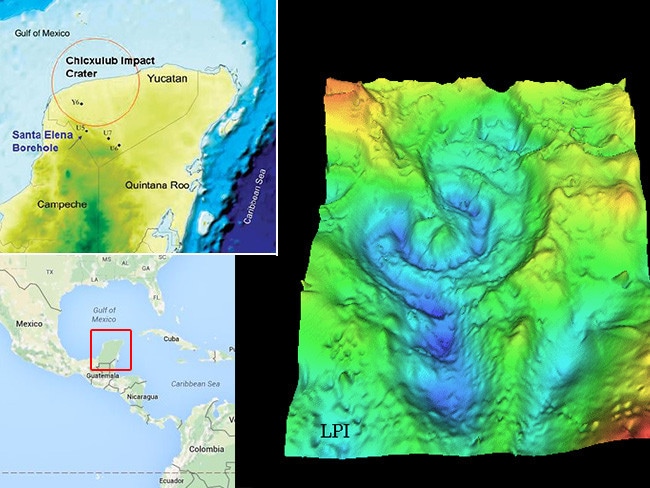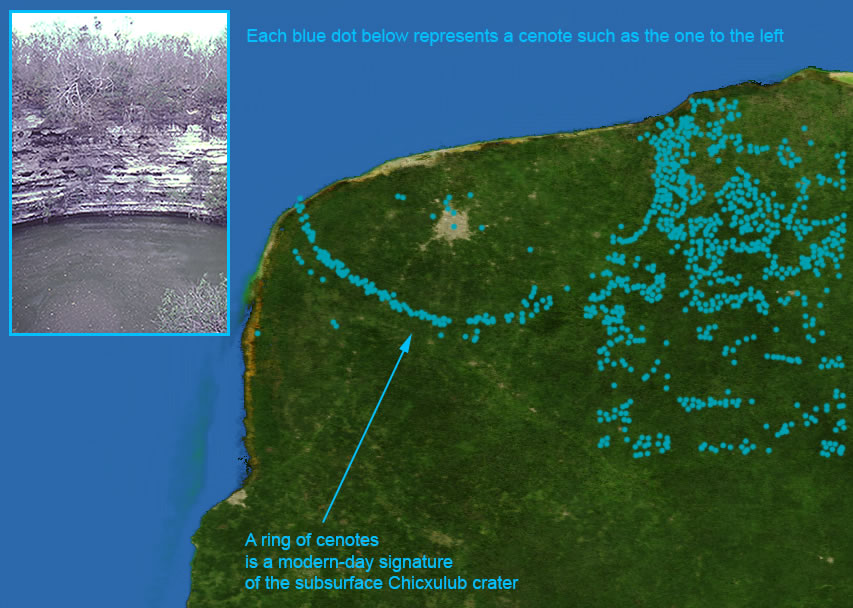These are my crazy thoughts at 5am ��
So I recently got a new copy of The Lost World. The last time I read it was years ago and I hadn't even read the first novel then. Im enjoying it a lot, the story gets going a lot faster. But one good point made by the character Levine has got me really thinking about extinction. Malcolm is discussing what causing extinction and how a species either adapts too much or is too rigid and doesnt adapt at all. Either way the species goes in the wrong direction and dies out. Well Levine brings up the point that dinosaurs supposedly lived all over the world! Even in antartica and there were sooooo many various species... Well he contends that the odds that EVERY species would make the wrong evolitionary adaption choice at the same time and they would ALL die out is highly unlikely! It's a great logical point that I have been thinking about a lot. After contemplating this I have to conclude that Levine is correct and that either some species still exists today or a possible theory of mine is that dinosaurs (as much as I love them) are a complete hoax.
I don't see how an ENTIRE group of animals with all types of species and sub species could all die out at once. No matter what the length of time is. Just thinking about it I cant think of another species that has been completley wiped out. Im not an expert.... But for example the dire wolves have died out but we still have other types of wolves. The saber tooth tiger is gone but we still have many other large cat species. Birds have gone extinct but we still have plenty of birds. Prime apes and even human sub species have died out but we still have prime apes and humans around. The wooly mammoth and mastadons are gone but we still have elephants. Sharks and other fish have disappeared but we still have plenty more out there. We still have the horse shoe crabs... Plant and insect life is same. Same goes for snakes and crocidles and lizards. I dont know of any species that is completley gone!
With that in mind it seems illogical that the dinosaurs could have all disappeared if they really existed as we're told.
No matter what the causes might have been, including worldwide cataclysmic events. If they were all over the world and other life survived how would they all be wiped out? If your of a creationist mindset you might say after the flood the climate changed. There wasn't enough oxygen in the air for the titanic species to breath....ok. But what about the smaller species? Things the size of a compy, velociraptors and other small theropods could breath just fine. So how about suddenly having cold weather and winters? Well let's look at the two species the dinosaurs were thought to be the most similar to.... Reptiles and birds. Many reptiles survive in winter climates. Lizards and snakes simply find a hole and hibernate through the winter. There's even a theory that dinosaurs did this in Antarctica. Yes a titanic species like a sauropod or a Rex couldn't did a hole and hibernate. But what about a Troodon or something compy sized? There's no reason they couldnt hide. If you look at aligators and crocidiles, they exist in america in places where they have bad winters and snow. Somehow they survive without hibernating. Then there's the fact that only going as far south as Florida gives you a warm climate year round. Not to mention central, south america, the numerous islands, and Africa that stays warm. Moving on to birds, some birds migrate. Many more birds stick it out all winter long with no ill effects. Many people believe now that dinosaurs were warm blooded so they would be able to withstand wintery conditions just as well as any other animal. When I think about it I just cant think of any logical reason why EVERY species wouldn't survive! There were too many species and too many possibilities and adaptions.
For this reason I can only conclude some species no matter how small must still exist if they were real. There are reports from historical writers suggestioning they encountered "dragons" in different parts of the world. Then there are the stories of the swamps in africa, jungles of south america, and islands of new guinea claiming some may have survived. The argument that they are a hoax is that most claimed species only have a few teeth or bone fragments that palentologist have extrapolated into extraordinary species with no skeletal proof of their existence. There's also the fact that 99.9% of anything you see at a museum is a recreation that they say is made based on actual fossils. But the real fossils arent on display for us to actually see. Could they all be made up? Or could it be that only a very few were real and most are fabrications of imagination? If there were really only a handful of species, maybe then a total extinction would make sense. If there were only 20 or 30 species then maybe they could have all failed to adapt... But from my knowledge I still dont know of any animal species especially complex larger ones that are completely gone. This is like all mammals disappearing, or all reptiles, or all rodents, or all bovine. It's still maddening to think about how that could happen.
If you think they all existed and all disappeared what do you think could have happened to cause this? Do you think they could all be a hoax? Do you think there could really be a Lost World out there somewhere, even if it only consists of one chicken sized species?
Thanks for reading. These have just been my thoughts that I wanted to get out there.
So I recently got a new copy of The Lost World. The last time I read it was years ago and I hadn't even read the first novel then. Im enjoying it a lot, the story gets going a lot faster. But one good point made by the character Levine has got me really thinking about extinction. Malcolm is discussing what causing extinction and how a species either adapts too much or is too rigid and doesnt adapt at all. Either way the species goes in the wrong direction and dies out. Well Levine brings up the point that dinosaurs supposedly lived all over the world! Even in antartica and there were sooooo many various species... Well he contends that the odds that EVERY species would make the wrong evolitionary adaption choice at the same time and they would ALL die out is highly unlikely! It's a great logical point that I have been thinking about a lot. After contemplating this I have to conclude that Levine is correct and that either some species still exists today or a possible theory of mine is that dinosaurs (as much as I love them) are a complete hoax.
I don't see how an ENTIRE group of animals with all types of species and sub species could all die out at once. No matter what the length of time is. Just thinking about it I cant think of another species that has been completley wiped out. Im not an expert.... But for example the dire wolves have died out but we still have other types of wolves. The saber tooth tiger is gone but we still have many other large cat species. Birds have gone extinct but we still have plenty of birds. Prime apes and even human sub species have died out but we still have prime apes and humans around. The wooly mammoth and mastadons are gone but we still have elephants. Sharks and other fish have disappeared but we still have plenty more out there. We still have the horse shoe crabs... Plant and insect life is same. Same goes for snakes and crocidles and lizards. I dont know of any species that is completley gone!
With that in mind it seems illogical that the dinosaurs could have all disappeared if they really existed as we're told.
No matter what the causes might have been, including worldwide cataclysmic events. If they were all over the world and other life survived how would they all be wiped out? If your of a creationist mindset you might say after the flood the climate changed. There wasn't enough oxygen in the air for the titanic species to breath....ok. But what about the smaller species? Things the size of a compy, velociraptors and other small theropods could breath just fine. So how about suddenly having cold weather and winters? Well let's look at the two species the dinosaurs were thought to be the most similar to.... Reptiles and birds. Many reptiles survive in winter climates. Lizards and snakes simply find a hole and hibernate through the winter. There's even a theory that dinosaurs did this in Antarctica. Yes a titanic species like a sauropod or a Rex couldn't did a hole and hibernate. But what about a Troodon or something compy sized? There's no reason they couldnt hide. If you look at aligators and crocidiles, they exist in america in places where they have bad winters and snow. Somehow they survive without hibernating. Then there's the fact that only going as far south as Florida gives you a warm climate year round. Not to mention central, south america, the numerous islands, and Africa that stays warm. Moving on to birds, some birds migrate. Many more birds stick it out all winter long with no ill effects. Many people believe now that dinosaurs were warm blooded so they would be able to withstand wintery conditions just as well as any other animal. When I think about it I just cant think of any logical reason why EVERY species wouldn't survive! There were too many species and too many possibilities and adaptions.
For this reason I can only conclude some species no matter how small must still exist if they were real. There are reports from historical writers suggestioning they encountered "dragons" in different parts of the world. Then there are the stories of the swamps in africa, jungles of south america, and islands of new guinea claiming some may have survived. The argument that they are a hoax is that most claimed species only have a few teeth or bone fragments that palentologist have extrapolated into extraordinary species with no skeletal proof of their existence. There's also the fact that 99.9% of anything you see at a museum is a recreation that they say is made based on actual fossils. But the real fossils arent on display for us to actually see. Could they all be made up? Or could it be that only a very few were real and most are fabrications of imagination? If there were really only a handful of species, maybe then a total extinction would make sense. If there were only 20 or 30 species then maybe they could have all failed to adapt... But from my knowledge I still dont know of any animal species especially complex larger ones that are completely gone. This is like all mammals disappearing, or all reptiles, or all rodents, or all bovine. It's still maddening to think about how that could happen.
If you think they all existed and all disappeared what do you think could have happened to cause this? Do you think they could all be a hoax? Do you think there could really be a Lost World out there somewhere, even if it only consists of one chicken sized species?
Thanks for reading. These have just been my thoughts that I wanted to get out there.
Last edited:


